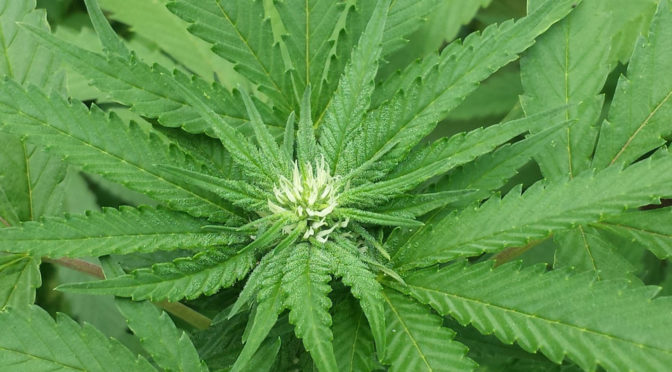Honolulu ophthalmologist Clifton Otto wants a ban on imported hemp CBD products – cannabidiols – being sold in Hawai‘i health food stores and smoke shops as “dietary supplements,” or at the very least have such products subjected to the same regulations that apply to other controlled substances.
“This is non-pharmaceutical grade CBD that is being extracted from the stalks, and sometimes even the flowers,” he says, “of hemp strains (THC of 0.3 percent or less) that are being grown in other countries and other states that allow this activity.”
He says they are being classified as “dietary supplements” because a product labeled with a medical use is considered a new drug and has to go through Food and Drug Administration approval process.
“The problem is that CBD is not a dietary supplement,” he says. “It’s a chemical that’s being used exclusively for medical purposes to treat seizure and arthritis inflammation and even cancer.”
Why is he concerned? Because the hemp is not being produced for medical use, he explains, it’s not undergoing the manufacturing practices all drugs go through. He says medical patients are using something that’s untested and of unknown purity. He adds it could also contain contaminants we don’t know about.
In addition, he talks about some 2007 medical studies done with CBD in simulated gastric environments. “They found that CBD can be turned into not only tetrahydrocannabinol (THC), but some other metabolites as well,” he says.
“They’re proposing this might be part of the reason why children, these medical refugees who are going to Colorado to gain access to hemp CBD, are having unusual reactions. Because some of the CBD is being converted into THC in their stomachs, which is making them tired and disoriented and can sometimes stimulate seizure activity. That’s something I don’t think people are that aware of yet.”
He says he recently heard about someone who failed a pre-employment drug screening test because he tested positive for THC. The applicant told the doctor he’d only used hemp CBD products.
Richard and Jaclyn Moore, who is a pharmacist on Lau Ola’s team, visited with Honolulu ophthalmologist Clifton Otto the other day. “He’s a passionate proponent for patient’s rights,” says Richard.
Research and Law
Otto’s interest in medical marijuana began a few years back when a family friend used it while undergoing treatment for colon cancer.
He says his first exposure to medical marijuana was a real eye-opener.
“I realized if my friend hadn’t been using marijuana during the chemotherapy before and after surgery, he probably would’ve lost a lot of weight and developed secondary infections. And he probably would have died from that before he died from the cancer.
“I started doing some research online,” he says, “reading some of the peer-reviewed articles, and it’s just amazing how much information is available. Even how much research was done back in the ’70s before this was all shut down by the war on drugs.”
Then, he says, he started looking at the law.
“That’s when I started to become a patient advocate. I just couldn’t believe how our patients were being treated in terms of lack of access and being harassed by law enforcement.”
It led him to look into the “scheduling” of marijuana at the state and federal levels. That, he says, is the crux of the problem.
CBD is a Schedule 1 controlled substance:
Schedule I drugs, substances, or chemicals are defined as drugs with no currently accepted medical use and a high potential for abuse. Some examples of Schedule I drugs are:
heroin, lysergic acid diethylamide (LSD), marijuana (cannabis), 3,4-methylenedioxymethamphetamine (ecstasy), methaqualone, and peyote
Marijuana is illegal on a federal level. But medical marijuana is legal in the state of Hawai‘i. The federal government is not currently enforcing its law. Otto says that’s what led to the importation of unregulated hemp-based “dietary supplements.”
Bigger Picture
He is not against medical marijuana, and in fact provides patients with written certification to obtain it. He just wants to know that what’s out there, used medicinally, is safe.
“One of the reasons I’m interested in this is because of this whole potential for being able to produce a locally sustainable health care system for Hawaii. I believe cannabis can be a centerpiece of that because of all its medical benefits,” he says.
“I think this hemp CBD products issue is important because it points out the opportunity the state has to benefit from the purely intra-state production of cannabinoids. We could have cancer patients coming from all over the world to be administered CBD at high doses for anti-cancer treatment.
“I’m not sure that the state realizes that about the potential yet, ” he says, “because of how biased we are towards federal law and the federal policy towards marijuana.”
He has spoken to the state Public Safety Department (PSD), which issues controlled substance certificates to doctors, about his concerns over hemp CBD products as “dietary supplements.” Someone there recommended he contact the governor’s office directly, which he did about four months ago. He hasn’t heard back yet.
“I asked PSD to offer a rescheduling recommendation, because PSD has the authority to make scheduling recommendations to the legislature every year when we match up our state-controlled substance acts with the federal-controlled substance acts. They wrote back to me and said, ‘Actually, we’re not going to do that because we are following the federal schedule.’”
Someone there recommended he contact the governor’s office directly, which he just did. He hasn’t heard back yet.
“We just don’t know if it’s safe,” he says. “It’s certainly not being used as intended.”
photo: Clifton Otto

